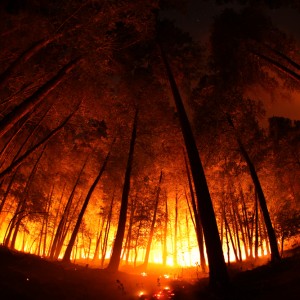The Stream, October 27: Climate Change Set to Create Unbearable Heatwaves in Middle East Cities
The Global Rundown |
Heatwaves in Middle East cities, including Abu Dhabi and Dubai, are on track to become unbearably hot for humans by the end of the century if climate change continues, scientists found. Communities in the Philippines are struggling to recover from Typhoon Koppu’s floods, while floods in Texas linked to Hurricane Patricia could leave the state with a hefty bill. Laos plans to expand its hydropower capacity to increase electricity exports. Tar sand operations in Canada are withdrawing too much water from the Athabasca River, according to an environmental group. Residents of Florida say water is the state’s biggest environmental threat.
“Giving companies first rights to water, over longstanding Indigenous treaties or any other recognized water licenses holders is clearly a human rights issue.”–Jesse Cardinal, coordinator of the Keepers of the Athabasca environmental group, on concerns about water withdrawals from Canada’s Athabasca River for tar sand mining. The group says low water levels in the river are disrupting the fall harvest for First Nations communities. (Vice)
By The Numbers |
10,000 megawatts Amount of electricity Laos plans to generate from hydropower by 2020 to increase exports to neighboring countries, according to government officials. Reuters
$3 billion Potential damages in Texas due to floods triggered by Hurricane Patricia, with most of the costs associated with infrastructure like roads and bridges. Bloomberg
38 percent Proportion of survey respondents in Florida who named water as the state’s biggest environmental problem, topping the list of threats. Sun Sentinel
Science, Studies, And Reports |
Climate change under current emission scenarios is set to create unbearable heatwaves in cities including Abu Dhabi and Dubai by the end of the century, according to a study published in the journal Nature Climate Change. The extreme heatwaves would be caused by a combination of high temperatures and high humidity. Guardian
On The Radar |
Approximately 300 communities in the Philippines are still flooded in the aftermath of Typhoon Koppu, which affected 2.7 million people. Aid agencies have warned that food security could become a significant barrier to recovery because the typhoon destroyed harvests and damaged farmland. Reuters
A news correspondent for Circle of Blue based out of Hawaii. She writes The Stream, Circle of Blue’s daily digest of international water news trends. Her interests include food security, ecology and the Great Lakes.
Contact Codi Kozacek







Leave a Reply
Want to join the discussion?Feel free to contribute!